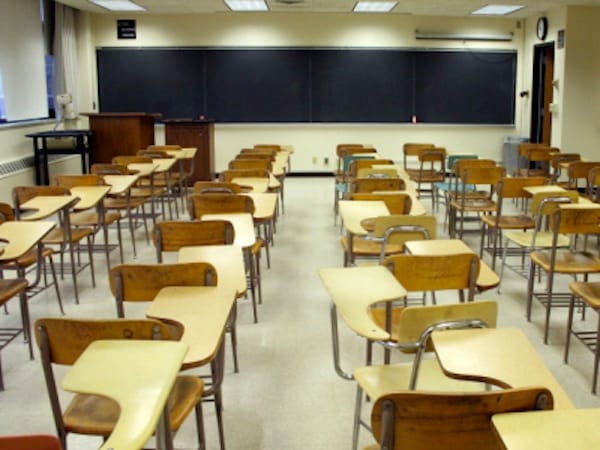The Need For Education Reform In Texas Crosses Party Lines

Credit: austin.ynn.com

Back in the spring of 2007, Texas lawmakers voted to repeal-and-replace the older standardized testing model with the more rigorous State of Texas Assessments of Academic Readiness (STAAR) to improve accountability and measure a student’s readiness for college and a career.
However, the relatively new program generated less than desirable results for the state’s students and has left lawmakers, schools, and business leaders looking for an alternative to prepare students to move on to college and into the state’s workforce.
What worries many reformers is that Texas schools have become laboratories for “teach-to-the-test” models, because STAAR mandates entering ninth graders pass twelve end-of-course tests for each core subject— math, science, English, and social studies— even if they pass the course, before they can graduate.
Opponents of the current system say that it creates an environment that makes students ill-equipped to go to college or prepare for a career straight out of high school.
Based on initial STAAR tests results, at least eighty percent of students passed the Biology, Algebra I and World Geography tests, but English scores fared worse. Only sixty-eight percent of students passed reading and fifty-five percent passed writing. These scores reflect the phase-in stage of STAAR, and not the full implementation of the program which will occur by 2014.
The number of students that dropped out during the 2010-2011 school year was just over 34,300, slightly lower than a year before. Most of those students were of Hispanic or Latino origin. In addition, new figures released by the Texas Workforce Commission show that the unemployment rate has remained at seven percent, even with 38,000 jobs added in the month of August.
At the heart of the reform debate lies the push for school choice and private vouchers for disadvantaged youth. In August, the Senate Education Committee met to discuss vouchers and charter schools, something Democrats vehemently oppose. Republican State Senator Dan Patrick, who headed the special hearing, stressed the need to pass pro-school choice legislation in the next session saying:
“To me, school choice is the photo ID bill of this session. Our base has wanted us to pass photo voter ID for years, and we did it. They've been wanting us to pass school choice for years. This is the year to do it, in my view. That issue will do more to impact the future of Texas and the quality of education than anything else we could do.”
The conservative think-tank Texas Public Policy Foundation has advocated that local administrators, parents, and teachers push to implement “home-rule” districts according to the state’s education code. They also see campus charters— which could take effect under a “parent trigger” through petition— as the most effective way to allow local communities to govern their own schools and set standards that would best serve the students in those districts.
Texas Democrats want to take a holistic approach to education reform. Their platform for the upcoming year looks to invest in community school programs that go beyond the classroom and look to provide safe environments for kids to thrive. Democrats advocate continued support of multilingual education, as well as enforcing limited class sizes, and providing more after school options to bring schools and neighborhoods together.
Republicans and Democrats understand the need for education reform in Texas. Party leaders disagree on several issues. However, both sides do see a need to extend and expand pre-K and early education options as a gateway to consistent academic achievement.
Despite partisan differences, parents, schools and reform advocates have scored victories. In February, former education commissioner Robert Scott deferred the rule that would have made the STAAR tests fifteen percent of a student’s overall grade. The rule added to the confusion over how schools should apply the grade.
As of now, the “fifteen percent rule” has been delayed, but it is yet to be seen if lawmakers will permanently eliminate the provision.
Another bi-partisan success has been the TSTEM initiative, a public-private partnership to aggressively target students for careers in math, science, engineering, and technology. With support from corporations, local universities, the TEA and non-profit organizations like Communities Foundation of Texas, several TSTEM centers and academies have already forged a path to meet the growing demand for these industries.
The next Texas Legislature will be challenged to actively take on real education reform in Texas. Legislators must wrestle with the effects of the 5.4 billion budget cuts to education, changes in the state's teacher retirement pensions, and pending lawsuits from both parents and school systems in regards to whether money is being allocated and managed effectively and ethically.
The Texas Education Agency got the ball rolling a few weeks ago by filing for a No Child Left Behind waiver that the Obama administration has permitted for states who want it. However, the agency has submitted its own version of the waiver that omits the stipulations the president set. It is yet to be seen whether the administration will accept the revised waiver.



